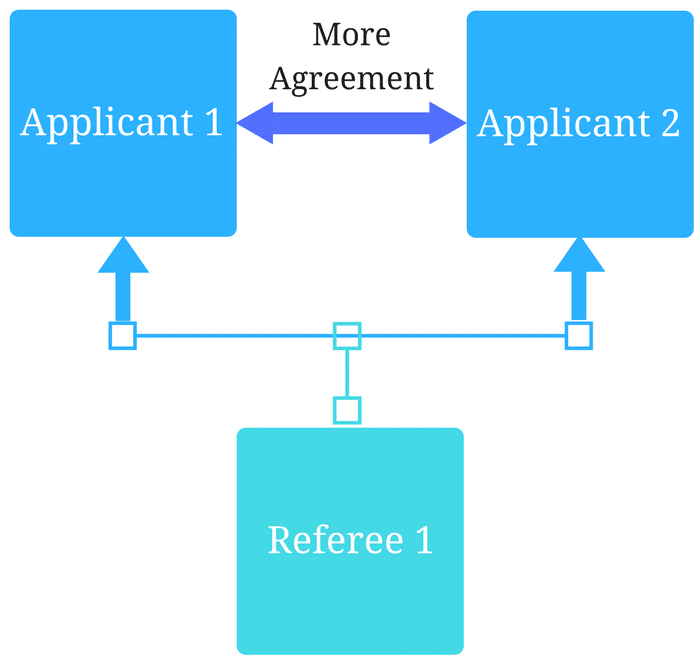Professionalism: The Missing Link in University Admissions

May 24, 2023
Professionalism is a key determiner of success in any career path. But what exactly is professionalism?
Generally speaking, professionalism is an umbrella-term for the soft skills individuals are expected to display in their work environments. Experts in various fields, including medicine, law, and business agree that soft skills such as communication, conflict resolution, time management, ethics, integrity and emotional intelligence are all important factors that enable a professional to excel in their field of practice.
A dentist with a gentle bedside manner will make a patient more comfortable, increasing the probability of a good experience and their return for regular visits. A data engineer with strong listening skills will take in information thoroughly and efficiently, decreasing the amount of back and forth required to complete a project. A business leader who is collaborative will work well with a team, making it easier to rely on the strengths of their colleagues while they focus on their own area of expertise.
In spite of all this, professionalism continues to be one of the most difficult factors to assess in admissions across disciplines. Applicants academic test scores are typically overemphasized, while traditional admissions practices like evaluating CVs and personal statements are unreliable, and conducting quality interviews is infeasible for all applicants or labor-intensive for the few you do get to meet.
There is another way.
If the student application and assessment process considers professionalism and the soft skills it encompasses, those who graduate from these programs will enter their fields equally skilled yet more well-rounded, better poised for long-term success.
Many modern universities still don’t assess professionalism
Most university admission criteria focus heavily on the quantitative results of standardized tests like the SAT, MCAT, LSAT, GMAT, and GRE, and sometimes consider other factors like mission-oriented goals. While many also consider letters of reference and personal statements, these are also not without faults, and contribute to professionalism and lived experiences as an afterthought.
In 2019, the Society for Human Resource Management conducted a study of its members, 51 percent of whom reported that education systems have done little to nothing to help address the skills shortage. These weren’t hard skills that were missing. According to the members, the top skills that were missing were problem solving, critical thinking, innovation and creativity, and communication.
Results of a 2018 survey of 650 employers and 1,500 students concluded that nearly three in four employers have a hard time finding graduates with the soft skills their company needs.
According to Jim Link, former Chief Human Resources Officer at Randstad North America, “Adaptability, problem-solving, creativity, influence, drive, empathy and collaboration. What I’ve observed is that those things … aren’t being practiced by college graduates.”
This is a significant problem facing the modern workforce, and until academic programs intentionally and effectively consider soft skills in their student selection process, it will only get worse.
Casper: Standardized assessments for soft skills
Assessment systems that reliably evaluate soft skills will help alleviate this problem and graduate more people into the workforce who are proficient in communication, collaboration, and empathy.
A simple way to make this happen is by implementing a situational judgment test like Casper—a standardized evaluation of social intelligence and professionalism.
Casper probes for a person’s judgments and ability to navigate complex hypothetical interpersonal situations. The scenarios presented are video and word-based, and test takers are asked to respond to open-ended questions over the course of about 90 minutes.
This format allows test takers to explain what they would do in each situation and provide a rationale, thus crafting their response in a way that can illustrate their analytical reasoning and communication.
Casper evaluates multiple skills, including collaboration, communication, empathy, fairness, ethics, motivation, problem solving, resilience, and self-awareness.
Each applicant is scored by multiple independent human raters, who go through extensive training to ensure they can accurately assess the scenario responses. Each program receives a single score, and applicants receive the quartile range of their score after their assessment.
Professionalism is the great differentiator
Higher education admissions have become increasingly competitive. At the same time, the importance of professionalism as a success indicator is becoming more pronounced. Without the consideration of professionalism during the admission process, programs are producing more health professionals, engineers, scientists, and business leaders that may excel in the hard skills directly tied to their specialties, but are unable to collaborate, communicate, or problem solve effectively, motivate others, or operate with ethics and empathy. This is a major hindrance to the ability of these professionals to succeed in a space where soft skills are key.
In order to correct this problem and ensure future professionals enter the workforce with a well-rounded skill set that enables them to fulfill their professional duties at the level expected of them, professionalism must become a fundamental and reliable element of the applicant screening process for admission into academic programs.
Want to learn how to select high potential applicants using Casper? Find out more!
Related Articles

How interviews could be misleading your admissions...
Most schools consider the interview an important portion of their admissions process, hence a considerable…
Reference letters in academic admissions: useful o...
Because of the lack of innovation, there are often few opportunities to examine current legacy…
